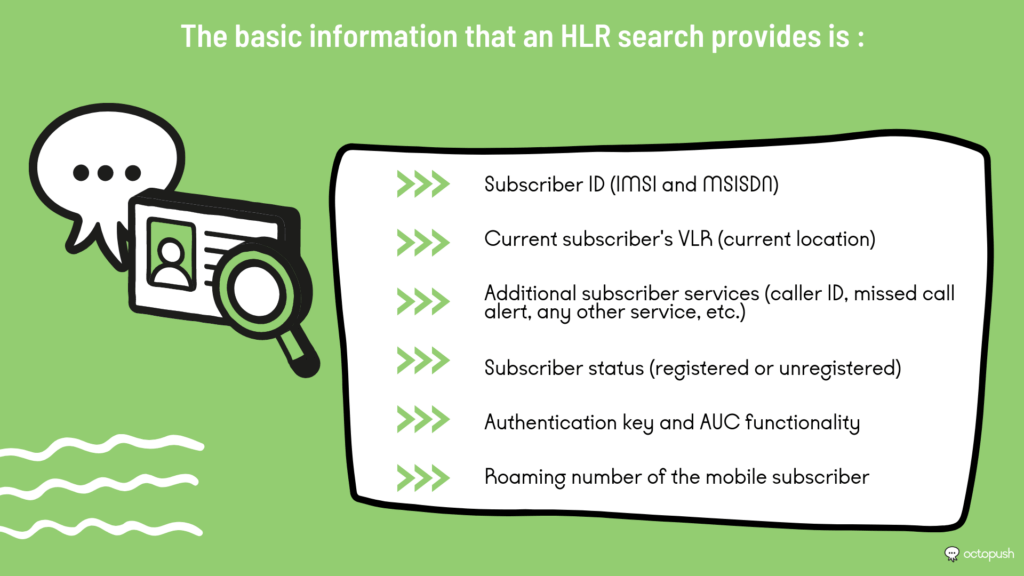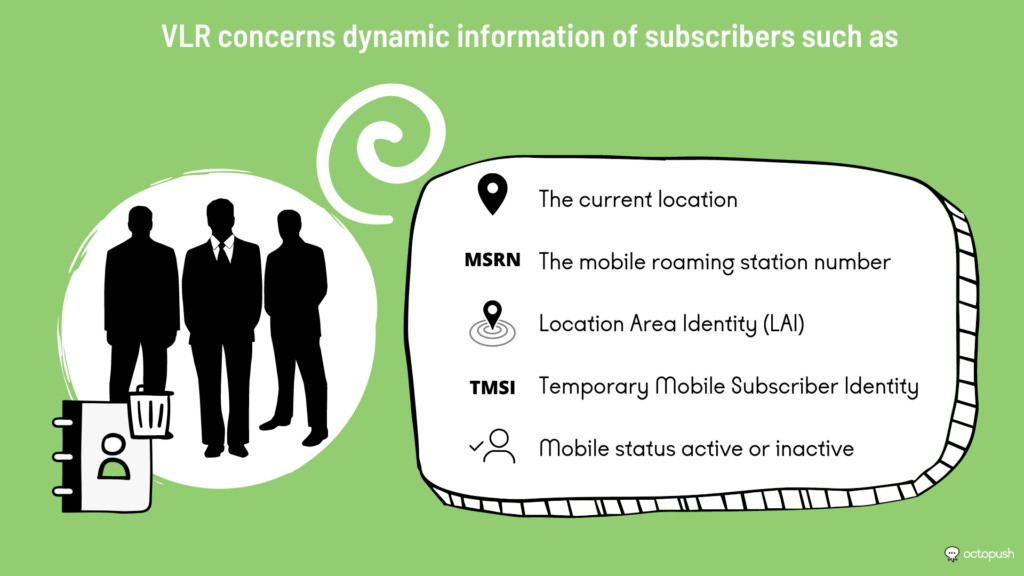Having a growing number on your customer portfolio seems ideal for any company. Have you ever wondered how many of these numbers are still valid? It could happen that you are trying to contact customers who have changed their phone number, making your marketing and customer service efforts useless. Moreover, this results in an expense that could easily be avoided by using an HLR lookup service.

What is HLR Lookup?
HLR stands for Home Location Register.
Running a search on HLR helps determine if your contacts’ phone numbers are up to date. Then the service deletes outdated customer files.
By keeping a clean customer database, you save the cost of sending to phone numbers, as it eliminates the time of sending messages to outdated numbers, reducing the chances of error messages being sent.
With HLR you save time with targeted mobile marketing campaigns for active customer files.
Computer analysis and contact cleansing take place in real time.
What is the corresponding function of the HLR equipment?
Cell phones and their corresponding SIM cards are mostly on the move. The HLR is used to identify their last known location.
This information is updated every time the device is moved to another location.
The HLR also facilitates SMS services to identify which Mobile Switching Center (MSC) the recipient is using at the time of sending. If the caller is reported as unavailable by the receiving MSC, a message waiting indicator is sent to the HLR. The message is then delivered as soon as the recipient is located on any MSC.
What information does the HLR provide?
When you place a request for verification of your database, the SGS partner provides details of the status of the request to the HLR in real time.
The HLR database contains various information about all cell phone number holders on the mobile network (such as the mobile network code called MNC). The idea behind a search on the HLR is to check if these numbers are still on the said network or if their holder has not changed them to another network, among other information. Once this analysis of the phone records is done, the inactive files are eliminated.

The basic information that an HLR search provides is :
- Subscriber ID (IMSI and MSISDN)
- Current subscriber’s VLR (current location)
- Subscriber’s additional services (caller ID, missed call alert, any other services, etc.)
- Subscriber status (registered or unregistered)
- Authentication key and AUC functionality
- Mobile subscriber’s roaming number
Find out more about the MNP Lookup method.
What are the differences between HLR and VLR?
When you search for databases storing subscriber information on a GSM architecture, sometimes you will probably come across the term VLR too.
Similar to HLR, VLR (acronym for visitor location register) stores information about subscribers on a telephone network, the difference is that VLR contains more dynamic information about roaming subscribers in the smaller VLR area.
Both the HLR and the VLR store information about the subscribers registered in the network, according to the GSM architecture.
The HLR is a fixed reference point for a given mobile station, while its VLR may vary depending on mobility and network design. VLR concerns dynamic subscriber information such as:
- Current location
- The active or inactive mobile status
- Location Area Identity (LAI)
- Temporary Mobile Subscriber Identity (TMSI)
- Mobile Station Roaming Number (MSRN)
- What is the status of the cell phone, whether it is busy, idle or not responding

In general, HLR contains information about all subscribers in a network, while VLR is temporary. When you command a search to the HLR, the database will also communicate with the VLR.
Calling the VLR function eliminates the need to make excessive references to the HLR database.
In the world of telecommunication you can also have other very interesting information like the MCC also called telephone code.
Why avoid a free HLR service?
Frequently you will find while browsing the Internet services that promise you to perform a search on HLR for free. However, you should know that these kinds of services are either usually faulty, or overwhelmed by advertisements.
Also, these services have limits on the number of requests you can make to the HLR, or they impose a roof on the number of contacts you can check before they take you to a paid solution.
Octopush offers you the HLR lookup service at an affordable rate, and allows you to check all or part of your mailing list in real time.
